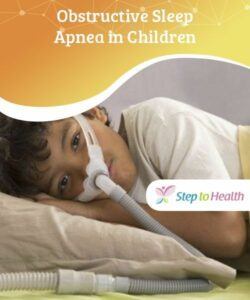
It happens to children too.
In my previous article: https://universal-health-products.com/sleep-apnea-the-facts/ I addressed obstructive sleep apnea in adults. But did you know that children can be a victim of the same? Can a child have sleep Apnea? If your child snores, chances are he or she may very well be experiencing an interruptive sleep disorder. So now is the time to address, children and sleep apnea. It is formerly known as pediatric obstructive sleep apnea
Causes of pediatric obstructive sleep apnea
Pediatric obstructive sleep apnea is a sleep disorder in which a child’s breathing is partially or completely blocked repeatedly during sleep. The underlying cause in adults is commonly obesity, while in children the most common underlying condition is enlargement of the adenoids and tonsils. However, obesity can also play a role in children. Besides fatness, other risk factors include having: Down syndrome, abnormalities in the skull or face, cerebral palsy, sickle cell disease, neuromuscular disease, history of low birth weight, or family history of obstructive sleep apnea.
Other underlying factors can be craniofacial anomalies and neuromuscular disorders.
There are other differences between pediatric obstructive sleep apnea and adult sleep apnea. While adults usually suffer with sleepiness during the day, children are more likely to have behavioral problems.
Getting an early diagnosis and treatment are important to prevent complications that can affect a child’s growth, cognitive development and behavior.
What are the symptoms
Signs and symptoms, of pediatric sleep apnea during sleep in addition to snoring include:
- Mouth breathing
- Snorting, coughing or choking
- Pauses in breathing
- Restless sleep
- Bed wetting
- Nightmares
Children with sleep apnea during the day may:
- Be hyperactive
- Perform poorly in school
- Have difficulty paying attention
- Have learning problems
- Have behavioral problems
- Have poor weight gain
Complications
Pediatric obstructive sleep apnea can have serious complications, including: Heart problems, failure to grow, even death.
Treatment
When a child consistently wakes up in the morning feeling tired after sleeping the proper amount of time and has behavioral problems it’s time to make an appointment with the pediatrician.
To diagnose pediatric sleep apnea, the doctor will review the child’s symptoms and medical history and conduct a physical exam. Several tests might be ordered to diagnose the condition.
Tests might include:
Polysomnogram – Doctors will evaluate the child’s condition during an overnight sleep study. This test uses sensors applied to the body to record brain wave activity, breathing patterns, snoring, oxygen levels, heart rate and muscle activity during sleep.
Oximetry – If doctors firmly suspect sleep apnea, and a full polysomnogram isn’t needed or available, an overnight recording of oxygen levels might help make the diagnosis. Oximetry can be done at home. However, it sometimes fails to give the diagnosis. In that case, a polysomnogram will still be needed.
Electrocardiogram – In an electrocardiogram, sensor patches with wires attached (electrodes) measure the electrical impulses given off by the heart. Doctors may use this test to determine if there is an underlying heart condition.
The doctor will work with the parents to find the most appropriate treatment for the child’s sleep apnea. Treatment might include: Medications, removal of the tonsils and adenoids, positive airway pressure therapy, or oral appliances.
Home remedies and Lifestyle changes
- Avoid airway irritants and allergens. All kids, however particularity those with pediatric sleep apnea, must avoid tobacco smoke or any other indoor allergens or pollutants, as they will cause airway irritation and congestion.
- Weight loss. Doctors may recommend a reduction in weight if he or she is obese. The doctor can provide diet and nutrition information, or refer to other specialists with expertise in managing obesity.
Pay close attention to your child’s sleep. Especially if any of the symptoms listed above exist. Do not hesitate to consult with your pediatrician. Early detection and treatment can make a world of difference to your child.
Please feel free to leave any question or comment below.
Good health!
Nice and thorough article about children and sleep apnea. This is one of those many symptoms that are coming more and
more common in our western societies due to the causes you mentioned and explained in your article. Thanks for posts and sites like yours, we have eventually more information and help available just behind of few clicks. In my opinion, many of the causes of sleep apnea like airway irritants and allergens could be avoided pretty easily if we just would put a little bit more attention on it. However, I will take a further look at your website and other articles here. Thanks for the information!
You’re welcome Jesse. Yes, we need to be a little more vigilant when it comes to our health.
Thanks for stopping by!
This is a great article on something I think we overlook too often. Sleep apnea can be dangerous. I have a son that snores and we did a sleep study on him. He didn’t have sleep apnea, but he still suffers with symptoms. We’ve researched other things as well. I think my hubby might have sleep apnea. Thank you for this thorough information. It’s very helpful! Do you have kids with sleep apnea? What made you think it was sleep apnea?
No Rebecca, I don’t have kids with sleep apnea, but I’m glad your son doesn’t. When I was a child though I had a problem with my tonsils and adenoids which can make one snore. My parents had them removed.
Thanks for stopping by and all the best with your son!